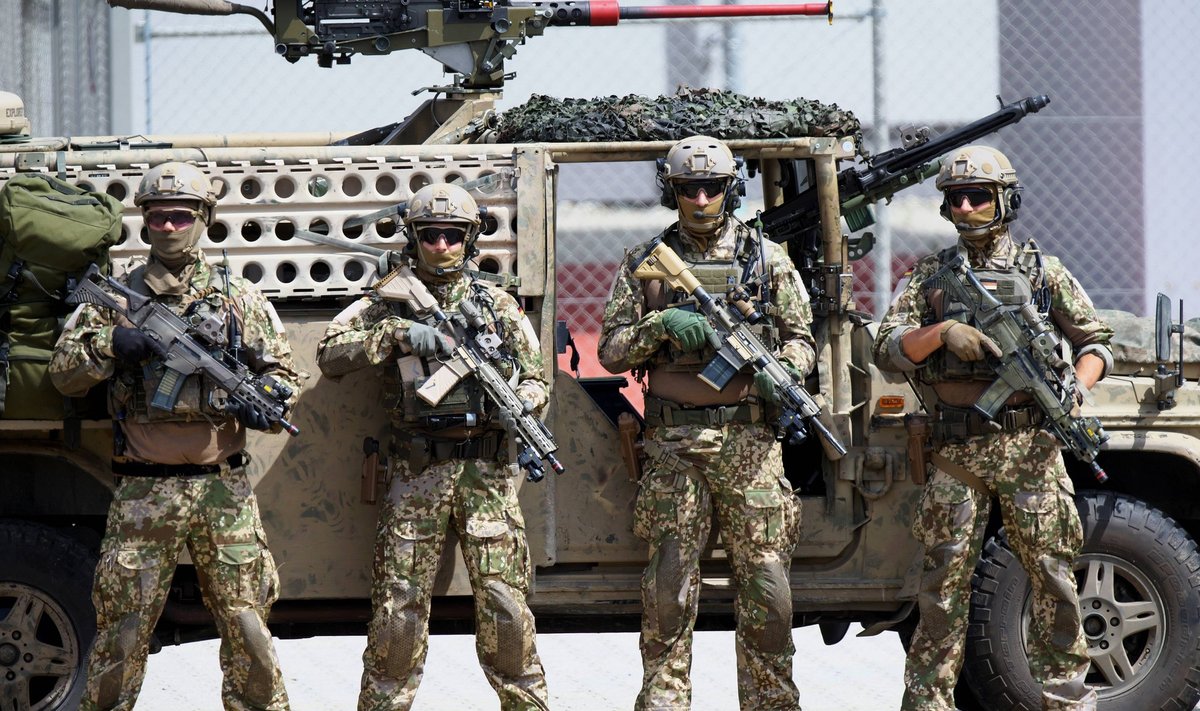Previously, Lithuania planned to have the necessary infrastructure to host the brigade by 2027.
"I can say for sure that the plan is already the middle of 2025," Kasciunas told reporters on Wednesday.
Minister of National Defense Arvydas Anusauskas says the deployment of the German brigade will require the construction of both storage facilities for weapons and infrastructure to accommodate troops.
"This would include Panevezys, Klaipeda, Suvalkija, and the Rudninkai training area," he told reporters.
A German-led multinational NATO battalion has been stationed in Lithuania since 2017, but countries agreed in June to upgrade it to the brigade level. This would increase the number of allied troops in Lithuania several times.
This option was also endorsed by NATO leaders at their recent meeting in Madrid.
Most of the brigade will be stationed in Germany, at least for the time being. Lithuanian officials site the existing lack of infrastructure to host and train allied troops as the reason for this decision and vow to develop the necessary infrastructure.
Among other things, Lithuania started to build a new military training area in Rudninkai earlier this year and also announced plans to develop campsites elsewhere in the country, capable of accommodating around 800 troops each.
According to the minister, some 350 million euros could be necessary over the next two to three years to improve the infrastructure. He posted on Facebook that the ministry had drawn up development plans for the brigade's infrastructure, adding that financial options are now being coordinated.
Also, there are plans to expand the existing barracks in Rukla, Jonava District, where the German-led NATO battalion is currently stationed.
"Since the project on paper was started four years ago and was very much stuck at some point, it has not only been revived but has also been pushed forward to the point that, once we receive German proposals, the design will actually start this year for a 2000-member allied contingent can be stationed in Rukla," Anusauskas said, adding that this will allow the barracks to accommodate not only the existing battalion troops but also Lithuanians.
The CNSD chairman also said had raised the issue of a special law on military infrastructure during the meeting.
"It seems to me that the particular case (...) of the physical barrier (on the border with Belarus - BNS) is an example of how serious projects can be implemented", Kasciunas said.
Anusauskas believes such a law is not necessary, adding, however, that the ministry's lawyers will look into it.
"I think we can do with the existing laws if there is a need (...). There's a legal problem here: when you do construction, you have to comply with all the laws. We cannot put all the laws into one law, rewrite other laws and put them into this one and call it a separate law," Anusauskas said.
He says all the infrastructure that's being developed will allow deploying some 15,000 additional troops in the country in the future, and the development of ammunition storage will allow accumulating of larger military reserves.
redakcija@bns.lt , +370 5 205 85 10, Vilnius newsroom
